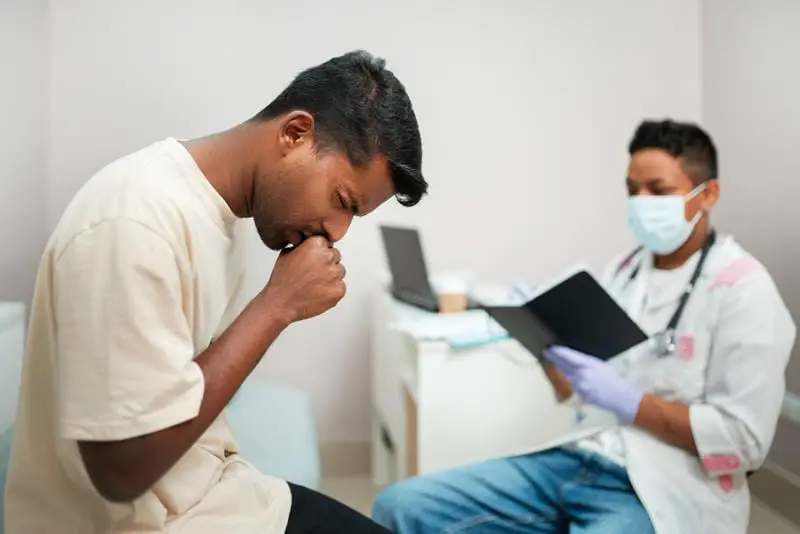- Published on: Apr 21, 2022
- 2 minute read
- By: Second Medic Expert
Inflammation: Definition, Diseases, Types, And Treatment
Inflammation is the body's natural response to infection or injury. It helps to protect us from harmful substances and promotes healing. However, sometimes inflammation can become chronic and lead to a variety of diseases.
There are three main types of inflammation:
1) Acute inflammation - This is the short-term, initial response of the body to an insult. It is characterized by redness, swelling, and pain.
2) Chronic inflammation - This is a long-term form of inflammation that can lead to various diseases. It is characterized by joint pain, fatigue, and general malaise.
3) Autoimmune inflammation - This occurs when the body's immune system mistakenly attacks healthy tissue.
Inflammation is a general term that refers to the body’s immune response to injury or infection. It can be acute (short-term) or chronic (long-term). Acute inflammation is a normal, healthy response that helps protect the body from harm. However, chronic inflammation can lead to a variety of diseases and health conditions, including heart disease, cancer, and arthritis. There are many different types of inflammation, but some of the most common include: gastroesophageal reflux disease (GERD), Crohn’s disease, ulcerative colitis, and rheumatoid arthritis. Each type is characterized by different symptoms and needs different treatment.
Inflammation is a natural process that our body uses to heal itself. However, sometimes this process can get out of control and start causing damage to our cells and tissues. This is what happens in chronic inflammation, where the body essentially starts attacking itself. There are many different diseases and conditions that are caused by chronic inflammation, including heart disease, arthritis, Crohn’s disease, and asthma. Treatment for these conditions typically involves medication or even surgery to reduce the inflammation levels.
If you think you may be suffering from a chronic inflammatory condition, it’s important to consult with your doctor right away. They will be able to determine if you have the condition and recommend the best course of treatment. Inflammation is the body's natural response to injury or infection. It helps to protect us from further harm and allows the body to begin the healing process. However, sometimes inflammation can become chronic and lead to health problems. There are four main types of inflammation: acute, subacute, chronic, and recurrent.
When you have inflammation, your body is responding to some sort of injury. The injury could be from an infection, a foreign invader like pollen, or even just stress. In response to the injury, your body releases chemicals that cause blood vessels to open wider so they can carry more blood and immune cells to the site of the injury. This extra blood flow causes the area to swell and can lead to redness, heat, and pain.
There are different types of inflammatory diseases, depending on what's causing the inflammation. For example, Crohn's disease is an inflammatory bowel disease that causes inflammation in the digestive tract. Rheumatoid arthritis cause inflammation in the joints Doctors define inflammation as a localized response to injury or infection. It is characterized by redness, swelling, heat, and pain. Inflammation can be acute, chronic, or subacute. Acute inflammation occurs suddenly and usually lasts for a few days. Chronic inflammation may last for weeks, months, or years. Subacute inflammation falls somewhere in between these two extremes.
There are many different diseases and conditions that involve inflammation. Some of the most common include arthritis, gout, Crohn's disease, and ulcerative colitis. There are also a number of different types of infections that can cause inflammation. Treatment for inflammatory conditions generally focuses on reducing symptoms and promoting healing.
Inflammation is a response of the body to injury or infection. It occurs when cells release chemicals that increase blood flow to the site of injury or infection. This increased blood flow brings more white blood cells and other immune system cells to the area, which helps fight off infection or repair tissue damage. There are many diseases and conditions that are associated with inflammation, including arthritis, bursitis, Crohn's disease, gout, inflammatory bowel disease, multiple sclerosis, psoriasis, and tendonitis. Inflammation can also be a symptom of other diseases such as cancer.
Inflammation is the medical term for a group of biological processes that involve swelling, redness, and pain. These processes are important for the body's immune system to defend itself against infection and injury. However, when inflammation occurs inappropriately or goes on for too long, it can damage healthy tissue and lead to a number of chronic diseases.
What are some common inflammatory diseases? There are many different types of inflammatory diseases, but some of the more common ones include arthritis (e.g., rheumatoid arthritis), asthma, Crohn's disease, and psoriasis. Each of these conditions has its own unique set of symptoms, but they all involve inflammation.
Our Services
Request A Callback
Recent Posts
TB disease symptoms
Dec 26,2025
early signs of hormonal imbalance
Dec 26,2025
common nutritional deficiencies in adults
Dec 26,2025
how air pollution impacts respiratory health
Dec 26,2025









